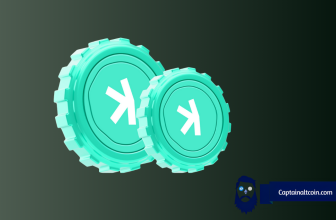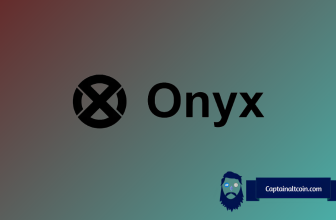
If you trade and invest in crypto, you’ll be well aware that it is somewhat unique in its place in the financial sector. Want proof? Consider the recent case of the Solana Saga Phone. The device, one of the first specialist web3 phones, was released last May. The Saga Phone had fairly poor sales. But that all changed in December 2023, when the price of the meme token Bonk started going through the roof.
Saga Phones came with a free airdrop of 30M Bonk tokens, and at one point the value of those tokens was greater than the price of the phone. Naturally, it caused a stampede of people trying to get their hands on the device, which soon sold out. Many of us were left shaking our heads, thinking, “Only in crypto”. Is there any other sector in the world where you could buy a phone loaded with a currency worth more than the phone itself?
The uniqueness of the crypto sector has, of course, manifested itself in culture, notably the language of the sector. To outsiders, it can seem a bit strange, even childish and unprofessional, but it largely captures the vibe of the global crypto community. Most certainly, traditional financial market terms like liquidity and slippage also apply to crypto, but there is a vernacular that applies to crypto only. Below, we list some of the terms to give you a flavor of what we mean.
Common Crypto Terms and Slogans
Hodl – A play on the word “hold”, meaning to have a long-term strategy by holding certain tokens until the opportune moment. The deliberate misspelling of the word is a common characteristic of crypto terminology. Other examples of deliberately misspelled words include “wen” (when) and “ser” (sir) and “rekt” (wrecked, as face financial ruin).
WAGMI – An acronym of We Are Going to Make It, a rallying cry among crypto investors that purports they are on the right side of (financial) history. NGMI (Never Going to Make It) is in turn a riposte, suggesting that someone does not have the credentials to succeed.
Bitcoin Maxi – Someone who believes that Bitcoin is the only cryptocurrency worth holding and that it is the future of finance. Other terms for this include being orange-pilled, which is a reference to the Matrix movie, suggesting that someone has their eyes finally opened.
Alt Season – A period where altcoins (any cryptocurrency that is not Bitcoin) rise – often dramatically – in value. There is a science behind this, as the logic is that Bitcoin rises first in a bull market before money moves into altcoins as market participants start to look for more value.
DYOR – Do Your Own Research. It’s a kind of disclaimer used by crypto enthusiasts that advises investors to make their own decisions.
Ape – A verb that means go heavy into an investment or trade, e.g., “I aped into this coin this morning.”. A related term to ape is “degen play,” which means making a risky investment or trade.
FOMO – Fear of Missing Out.
Fud/FUD – The deliberate spreading of misinformation to undermine a crypto token, project, or the entire industry.
Rug/Rug Pull – A scam project. For example, when those behind the project engage in a pump and dump scheme.
Whale – Someone who owns a large amount of a specific cryptocurrency, e.g., a Solana Whale. Of course, the term whale is also used in traditional finance.
✨ Exactly 10 years ago today, the term "HODL" was born in a drunken rant that turned into a rally cry for the #Bitcoin revolution
— Rizzo (@pete_rizzo_) December 18, 2023
I AM HODLING. Happy HODL Day! ✊ pic.twitter.com/8sPZJSl8Rc
The above is only a small portion of crypto terminology. However, it is interesting to speculate about whether it will influence traditional financial market terminology.
Of course, wealth managers in Toronto aren’t going to suddenly start talking about “getting rekt” in their communications with clients, but as crypto begins to shape traditional finance – which it has already begun to do – you may certainly see terms like “alt season” permeate the traditional financial vernacular. Indeed, terms like TradFi (traditional finance) and GameFI (web3 sector based on blockchain gaming) already have.
Disclaimer: CaptainAltcoin does not endorse investing in any project mentioned in this article. Exercise caution and do thorough research before investing your money. CaptainAltcoin takes no responsibility for its accuracy or quality. This content was not written by CaptainAltcoin’s team. We advise readers to do their own thorough research before interacting with any featured companies. The information provided is not financial or legal advice. Neither CaptainAltcoin nor any third party recommends buying or selling any financial products. Investing in crypto assets is high-risk; consider the potential for loss. Any investment decisions made based on this content are at the sole risk of the reader. CaptainAltcoin is not liable for any damages or losses from using or relying on this content.







